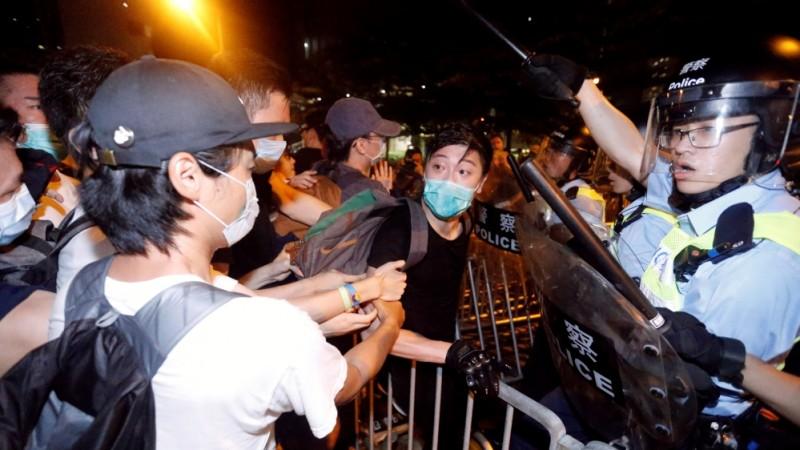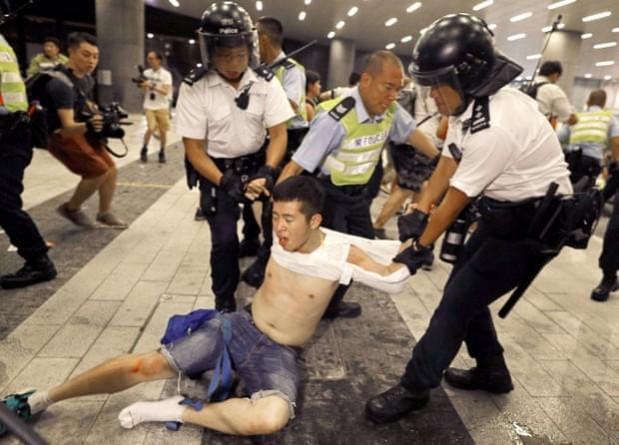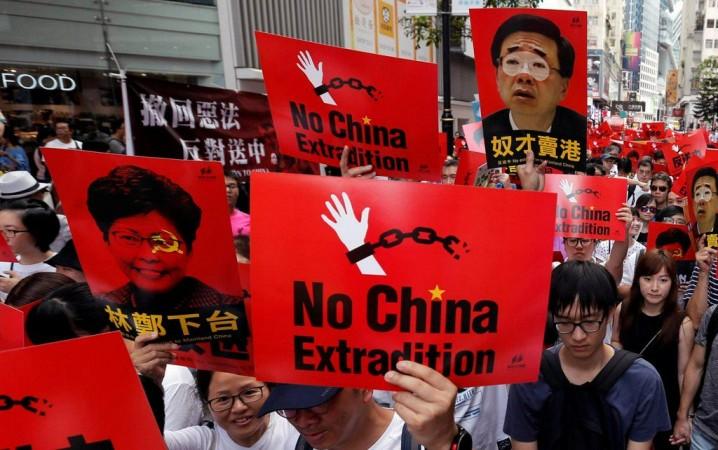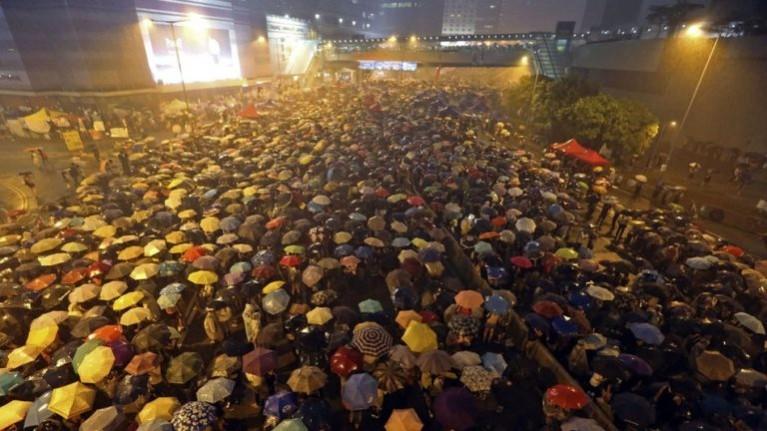
The police clashed with protesters in Hong Kong on Monday after at least a million protesters marched against the passing of the contentious extradition law. The massive demonstration turned violent after the riot police armed with batons arrived at the government headquarters in the Admiralty business district and subjected tear gas and pepper sprays against protestors who charged and hurled the police barricades.
#Update: Video of more and more protestors being pushed back by police officers in the streets of #HongKong this night at 03:00AM, after 1,3 million of people protested yesterday and tonight against a new extradition law to the mainland of #China. pic.twitter.com/j7bxmxfOUE
— Sotiri Dimpinoudis (@sotiridi) June 9, 2019
According to the protesters, the law would allow the communist regime to pursue their political targets living in Hong Kong to be legally extradited and face trials. Hong Kong is known to be a safe house where several anti-government protesters have sought refuge in the past.
The latest development took place in the Hong Kong city after 1 million people, according to organisers, marched from Victoria Park to government headquarters in a stretch of almost two miles on Sunday (June, 9) morning. The police have negated the numbers and have stated that 240,000 people had participated in the protests.
THIS IS MORE THAN 1 MILLION PEOPLE MARCHING!
— Nathan Law 羅冠聰 (@nathanlawkc) June 9, 2019
Say no to extradition to China! Proud to be HongKonger!#HongKong pic.twitter.com/wBCOlLPsQs
It is reported that small groups of protesters had planned to stay outside the headquarter until the second reading of the extradition bill took place on Wednesday. The police started moving the mobilised crowds by quoting expiration of their permission to protest at midnight. Within minutes chaos erupted as protesters fought with officers who were soon backed by riot police.

Indications of the contentious law to be passed by the pro-Beijing Hong Kong government was already expected. The protesters had chanted against Carrie Lam, the Hong Kong's chief executive, who has spearheaded the amendments of the Fugitive Offenders Ordinance to be passed before July.
James To, a veteran Democratic Party politician, had reportedly told the crowd "[Lam] has to withdraw the bill and resign. The whole of Hong Kong is against her."

Before the late-night disturbance police said six people had been arrested for criminal destruction and one for assault.
Carrie Lam at a press conference on Monday dismissed suggestions of her stepping down due and denied allegations that the bill was the result of Beijing's instructions and stated that the bill will "help to uphold justice".
VIDEO: Responding to massive protests in Hong Kong against allowing extraditions to mainland China, the city's pro-Beijing leader announces that she will not scrap the controversial bill because it will "help to uphold justice" pic.twitter.com/8burrFnmPy
— AFP news agency (@AFP) June 10, 2019
"This bill is not initiated by the central people's government," Lam said. "I have not received any instruction or mandate from Beijing to do this bill. We were doing it and we are still doing it out of our clear conscience for Hong Kong and our commitment to Hong Kong."
While the bill was quoted as a necessary step towards "severe deficiencies and gaps" in "cross-border and transnational crimes", regarding the recent protests, additional human rights safeguards following feedback from the public were also stated to have taken place by the government officials.
However, the public is still suspicious and holds its position of Beijing being the mastermind behind the law based on last month's incident in which a politburo member revealed that its targets included foreigners who had committed crimes against Chinese national security outside China.
The anxiety of Hong Kong bending before Beijing's imposition had plagued the minds of many before the recent demonstrations. In April, pro-democracy protest organisers were jailed for taking part in the Umbrella Movement protests in 2014 in which demonstration for seeking free, transparent elections from China had been sought by the public.

Anti-Beijing anger has been fuelled by the jailing in April of organisers of pro-democracy protests in 2014 and by the reduced presence of pro-democracy legislators after six were removed from parliament in 2016 and 2017 for protesting against Beijing during their oath-taking.
Human rights groups, legal alliances and numerous governments have expressed their concern about the bill.
China is notoriously known to suppress public memory and punish anti-government protests through crackdowns. Before this year's thirtieth anniversary of the Tiananmen Square massacre, several activists and relatives were either arrested on charges of 'picking quarrels and provoking trouble' or sent to far away places to avoid public triggering public memory regarding the brutal crackdown.
China is also known to have the most advanced surveillance system in the world. It is estimated that 6.1 per cent (1.24 trillion yuan, $196 billion) of government spending in 2017 was spent on domestic security. Around 176 million cameras (as of 2016) was promised by the Chinese Ministry of Public Safety to catch 'lawbreakers' by using facial recognition technology in combination with the video cameras.
Martin Lee QC, a pro-democracy figure and former legislator who helped organise the protests, told The Guardian, "If we lose this one, Hong Kong is not Hong Kong any more, it's just another Chinese city."

















